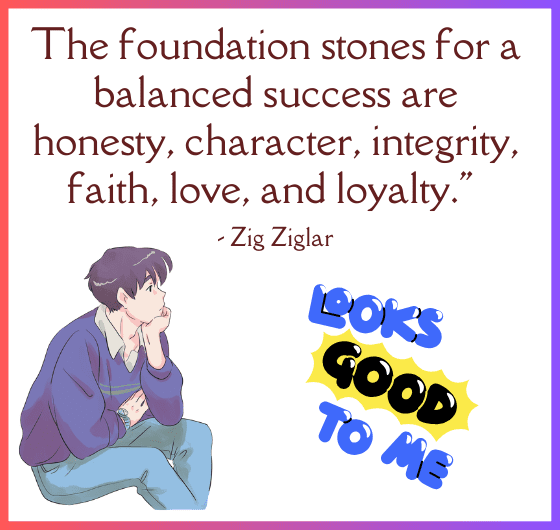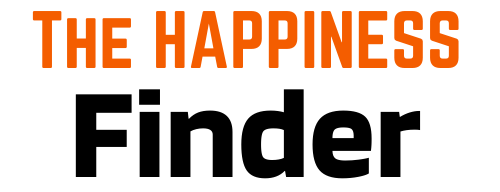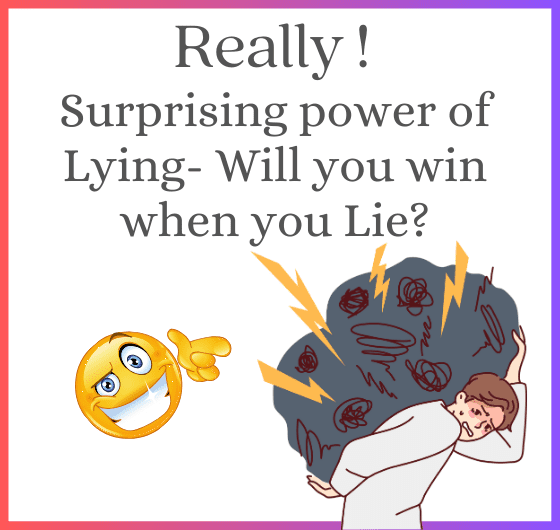Hey there, curious minds! Ever thought that a little white lie could actually help you succeed? Sounds strange, right? But believe it or not, there’s a trick to it! Imagine you’re in a tricky spot, like a job interview. The interviewer asks about something you know a bit, but not fully. Here’s where the power of lying comes into play – not a big fib, just a sprinkle of added confidence. You talk about how you’re familiar with it, and bam! The scale tips in your favor. This is like a secret recipe for success that only a few know.
The trust of the innocent is the liar’s most useful tool.” – Stephen King
Hold on, don’t get all tangled up in this web of lies! It’s not about building a castle on clouds of untruths. In a world where trust is like precious gold, we’re talking about a little silver lining of imagination. It’s like adding a dash of spice to your life – not too much to ruin the taste, just enough to make things interesting.
Think about planning a surprise party for your buddy. You’ve done all the prep, but a last-minute glitch pops up. Spilling the beans would ruin the fun, right? So, a tiny fib about not feeling great and needing to reschedule can save the day. Nobody gets hurt, and the party is a smashing hit!
Summing it up, being honest is super important, but life sometimes throws curveballs where a bit of clever honesty can help. Telling a fib isn’t about losing your way, but finding a new path to success. So next time you’re at a crossroads between full truth and a teeny-weeny bend, remember, your success might just be a well-timed tale away. Go on, give it a shot and watch life’s puzzles unravel in your favor!
“No man has a good enough memory to be a successful liar.” – Abraham Lincoln
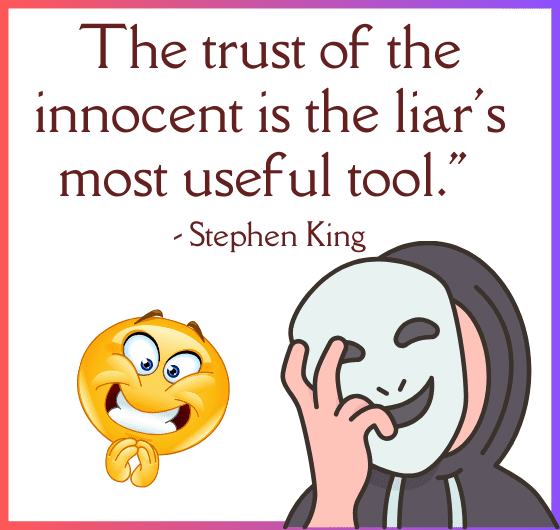
Are there any benefits to lying?
Life’s journey is a blend of sunshine and rain, and sometimes, a little fib can act as a protective umbrella. Imagine this: you’re planning a surprise for your dearest friend’s birthday. Everything’s set – the decorations, the cake, the guests. But then, your friend begins to suspect something. They ask, “Hey, is something up?” Now, here’s where a delicate lie can come into play. A tiny untruth like, “Oh, just a regular evening ahead,” can actually save the day. The surprise remains intact, and you’ve succeeded in creating a wonderful memory. This is the fascinating facet of lying – using it to paint life’s canvas with unexpected colors.
Before you get carried away, let’s set the record straight. We’re not advocating for a world filled with falsehoods. Honesty is the glue that holds societies together. What we’re exploring is the idea that a well-placed lie, like a seasoning, can enhance certain situations.
Consider this scenario: your friend has cooked a dish and is eagerly waiting for your verdict. Now, if it doesn’t quite suit your taste buds, blurting out the unvarnished truth might bruise their feelings. Here’s where a gentle lie comes into play. Saying something like, “It’s a unique flavor; I’ve never experienced anything like it,” not only saves their feelings but also maintains your bond. In this instance, lying becomes a tool for nurturing relationships.
To wrap it up, lying isn’t a one-size-fits-all solution, but rather a subtle ingredient in the recipe of life. Just like a pinch of salt can transform a dish, a well-measured lie can transform certain situations. The key is moderation and intention. So, the next time you find yourself at a crossroads between absolute truth and a little deviation, remember that the world of untruths might harbor unexpected benefits. As you navigate life’s complex map, consider the option of a well-placed fib, and watch how it adds depth and color to your journey.
“Lying is done with words and also with silence.” – Adrienne Rich
What are the disadvantages of lying?
Imagine life as a puzzle. Honesty is like the glue that holds the pieces together. But sometimes, we’re tempted to use a piece that doesn’t quite fit – that’s lying. Now, let’s explore why this puzzle piece doesn’t always work.
Trust: The first and most crucial disadvantage of lying is the erosion of trust. Trust is like a delicate glass vase – it takes time to build but can shatter in an instant. When you lie, even a little, it chips away at that trust. Think about a friend who promised to meet you but constantly makes up excuses. Eventually, you’ll find it hard to trust their word.
Guilt: Lying often brings along a heavy baggage called guilt. It’s like a shadow that follows you around, reminding you of your untruths. Picture this: you tell your parents you’ve finished your homework, but you actually haven’t. As you sit down to enjoy your free time, guilt nags at you, making it difficult to relax.
Complexity: Lies can become a tangled web. To keep one lie afloat, you might need to tell more lies. This web can quickly spiral out of control and make your life more complicated. It’s like weaving a spider’s web that traps you as much as anyone else.
Damage to Relationships: Lying can strain or even destroy relationships. Suppose you lie to your partner about something important, like money. When the truth surfaces, it can lead to arguments, hurt feelings, and even breakups. Honesty is the foundation of strong, healthy relationships.
Loss of Respect: Respect is like a precious jewel. When you lie, people may lose respect for you. Think of a boss who lies about employee benefits. The team might lose respect for the boss, making it challenging to work together effectively.
Isolation: Lying can lead to isolation. When people discover your untruths, they may distance themselves from you. Nobody likes being around someone they can’t trust. It’s like building a wall around yourself, pushing others away.
To wrap it up, lying might seem like a quick fix, but it comes at a cost. It chips away at trust, burdens you with guilt, and complicates your life. It can harm relationships, lead to a loss of respect, and even isolate you from others. So, as you navigate life’s puzzle, remember that the piece of honesty is the one that fits best. It keeps your puzzle intact, creating a more fulfilling and harmonious picture of life.
“When truth is replaced by silence, the silence is a lie.” – Yevgeny Yevtushenko
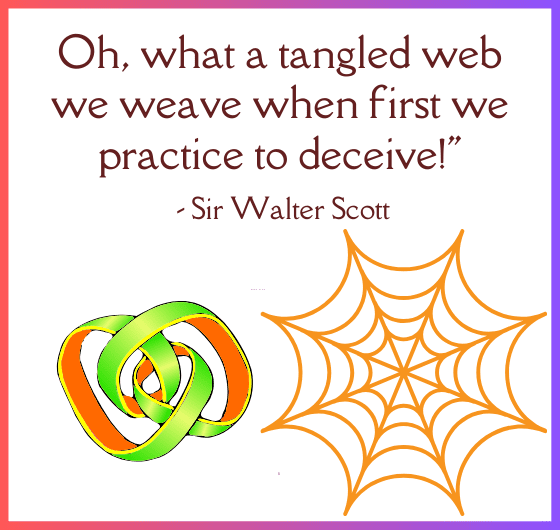
How lying can affect your life?
Lying is like a pebble tossed into the water of truth. The ripples it creates touch every corner of your life. Let’s wade into the shallows of this idea and see how it works.
“A lie told often enough becomes the truth.” – Vladimir Lenin
Trust Bridge: Imagine trust as a bridge between people. When you tell the truth, the bridge stands strong. But when you lie, the bridge weakens. Ever had a friend who didn’t keep their promise? That bridge of trust slowly crumbled, making it tough to rely on them.
Snowball of Lies: One lie often leads to another, like a snowball rolling down a hill. You might start with a small fib, but soon, you need more lies to cover the first one. It’s like a maze you get lost in, with no way out.
Guilt Storm: When you lie, guilt storms can brew inside you. It’s like carrying a heavy bag everywhere you go. Think about pretending to be sick to skip school – while your friends play, guilt pricks at you, making it hard to enjoy the time off.
Relationship Quicksand: Lying can sink relationships like quicksand. Suppose you’re not truthful with your partner about where you were. Eventually, they might find out, and the bond you had begins to sink, leaving you both trapped in feelings of hurt and mistrust.
Self-Image Shadows: Untruths cast shadows on your self-image. Every lie chips away at your self-esteem. Imagine you lied about taking a test. When the truth comes out, you might feel like you’re not good enough without those lies.
Lost Opportunities: Lies can close doors you didn’t even know existed. If you lie on your resume and get a job, you might not have the skills needed to excel. This not only affects your performance but can also damage your reputation.
To sum it up, lying isn’t just a small act; it’s like a stone that creates ripples across the waters of your life. It weakens trust bridges, creates guilt storms, and can even sink relationships. It casts shadows on your self-image and might close doors you wish were open. So, as you navigate the sea of life, remember that the waves of truth might seem rough at times, but they leave the shores of your life stronger, more reliable, and more genuine.
“If you tell the truth, you don’t have to remember anything.” – Mark Twain
How lying affect the brain?
Imagine your brain as a garden. Truth is the sunlight, and lying is like a shadow that creeps in. Let’s walk through this garden and see how lying affects the flowers of your thoughts.
Trust Undermined: Think of trust as a fragile plant. When you lie, it’s like pouring toxic water on it.
Brain’s Tug of War: When you lie, your brain engages in a tug of war between truth and falsehood. This mental struggle can create stress and anxiety-like clouds covering the sunny sky.
Memory Maze: Lies can twist your memory like a maze. Imagine you tell a story that isn’t true. Later, you might forget the real version and the fake story becomes your reality. This affects your ability to recall events accurately.
Moral Compass: Lying can shake your moral compass. Each lie shifts your sense of right and wrong. Think about a friend who starts lying to their parents. With time, they might find it easier to lie about bigger things, too.
Lying’s Slippery Slope: One lie can lead to another, like stepping on a slippery slope. Imagine telling a friend you can’t hang out because you’re busy. If they later discover you weren’t busy, trust might crumble, and your relationship could tumble downhill.
Brain’s Wiring: Lying can rewire your brain’s connections. It’s like taking a new path through the garden each time you lie. The more you take that path, the stronger it becomes. This can make lying a habit that’s hard to break.
In conclusion, lying isn’t just a simple act – it’s a garden of effects in the landscape of your brain. It undermines trust, engages your brain in a tug of war, twists your memory, shakes your moral compass, and leads to a slippery slope of more lies. It even rewires the connections in your brain. So, as you journey through life, remember that while lies might seem like fleeting shadows, they have the power to shape the garden of your mind in unexpected ways.
“Honesty is the first chapter in the book of wisdom.” – Thomas Jefferson
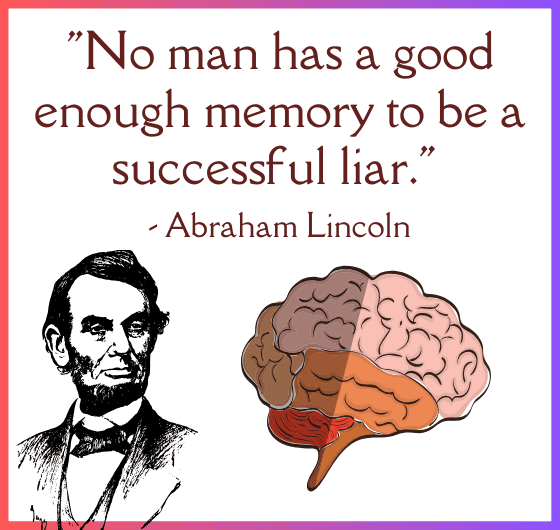
Why is lying so damaging?
Imagine trust as a fragile glass ornament. Lies are like cracks that creep in, threatening to shatter the beauty of this delicate piece. Let’s embark on a journey to understand why these cracks can be so devastating.
Trust: The Cornerstone: Trust is like the foundation of a strong house. When you lie, you chip away at that foundation, weakening the structure. Imagine a friend who promises to keep a secret but then spills it to everyone. The trust you had started to crumble, just like the house with a weak foundation.
“Integrity is telling myself the truth. And honesty is telling the truth to other people.” – Spencer Johnson
Emotional Erosion: Lies erode emotions just like waves wear away at the shore. Every lie is like a wave, eroding the beach of emotions that connect us. Think about how hurt you’d feel if someone you cared about lied to you. It’s like the ground beneath you slipping away.
Betrayal’s Sting: Lying can sting like a bee. Imagine a partner who lies about something important, like their whereabouts. When the truth comes out, it feels like a painful sting that doesn’t fade easily.
Crisis of Confidence: Lies create a crisis of confidence. Just as a road with potholes is hard to navigate, relationships filled with lies become tricky to navigate. Think about how difficult it is to trust someone who has lied to you before.
Self-Doubt Specter: Lying can lead to self-doubt. Each lie you tell is like planting a seed of doubt in your mind. Imagine a scenario where you lied about your abilities to impress someone. Later, you might question your actual skills, wondering if you’re good enough without the lies.
Damaging Domino Effect: One lie often knocks over others like dominoes. Imagine lying about something small, like your weekend plans. But then, to keep up the facade, you need to create more lies. Soon, the stack of lies is too tall to manage, and it all comes crashing down.
In conclusion, lying isn’t just a minor act – it’s a thread that weaves a tapestry of harm. It weakens trust, erodes emotions, stings like betrayal, triggers crises of confidence, feeds self-doubt, and sets off a damaging chain reaction. So, as you tread through life’s intricate paths, remember that honesty is the compass that guides you through the maze of relationships, leading you toward authentic connections built on trust and understanding.
“The truth is rarely pure and never simple.” – Oscar Wilde
How can I stop lying?
Imagine honesty as a shining light that guides your way. Lies are like clouds that obscure this light, making it hard to see clearly. Let’s step onto the path of truth and explore how to leave the clouds behind.
Acknowledge the Pattern: The first step is recognizing the pattern of lying. Think about times when you’ve stretched the truth.
Face the Consequences: Reflect on the consequences of lying. Remember that friend you let down by not keeping your promise? Facing the impact of your lies can be a powerful motivator to change.
Rewire Your Brain: Replace the lying habit with a truth-telling one. It’s like changing the direction of a river. The more you practice honesty, the more your brain rewires itself to embrace it.
“The truth may hurt for a little while, but a lie hurts forever.” – Unknown
Be Accountable: Share your journey with a friend or family member. Accountability is like a strong rope that keeps you from falling. Imagine telling a close friend about your decision to be more honest. They can support you when the urge to lie arises.
Practice Empathy: Empathy is like a bridge that connects hearts. Think about how your lies might have hurt others. Practice putting yourself in their shoes – it can help you understand the impact of your actions.
Seek Professional Help: If lying is deeply ingrained, consider seeking professional guidance. It’s like asking for directions when you’re lost. Just as you’d ask for help finding your way in an unfamiliar place, a therapist can guide you on the path to honesty.
Celebrate Small Wins: Each step toward honesty is a victory. Celebrate like you would for a friend who achieves a milestone. Imagine you managed to tell the truth even when it was tough. Treat yourself to something you enjoy as a reward.
In conclusion, stopping lying isn’t just a switch you flip – it’s a journey of self-discovery and growth. Acknowledge the pattern, face the consequences, rewire your brain, be accountable, practice empathy, seek help if needed, and celebrate your wins. As you tread this path, remember that honesty is like a beacon guiding you to authentic connections and a brighter, more fulfilling life.
“Honesty is a very expensive gift, don’t expect it from cheap people.” – Warren Buffett
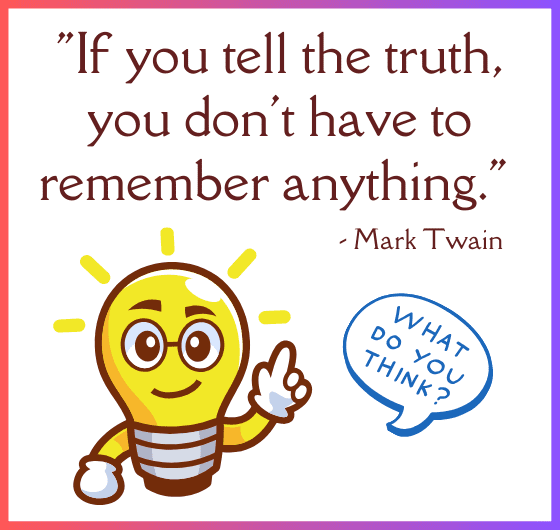
30 simple and easy-to-understand points about the potential benefits of lying:
1.. Avoiding Hurting Feelings: Sometimes, a little lie can prevent someone from feeling sad.
2. Surprise Planning: Lying can help plan surprise parties without ruining the secret.
3. Protecting Secrets: Lies can protect personal information you want to keep private.
4. Polite Responses: Lying politely can prevent hurting someone’s feelings.
5. Building Confidence: A well-placed lie can boost your confidence in certain situations.
6. Maintaining Harmony: Lying can avoid unnecessary conflicts and arguments.
7. Creating Pleasant Moments: Lies can create positive and happy moments.
8. Encouraging Effort: Praising someone’s effort with a little lie can motivate them.
9. Fitting In: Sometimes, lying can help you fit in better with a group.
10. Inspiring Positivity: Telling someone they’re doing great can inspire them to keep going.
11. Avoiding Unwanted Requests: Lying can help you decline requests you don’t want to fulfill.
12. Protecting Relationships: Lying can avoid damaging relationships over small matters.
13. Keeping Surprises: Lying can maintain the excitement of surprises.
14. Reducing Worry: Lying about being okay can prevent others from worrying.
15. Sparing Feelings: Lying gently can protect others from hurtful truths.
16. Promoting Unity: Lies can encourage teamwork and unity.
17. Creating Laughter: Small lies can lead to funny moments and laughter.
18. Minimizing Stress: Lying can make stressful situations more manageable.
19. Easing Social Situations: Lying can help in awkward social scenarios.
20. Showing Appreciation: A little lie can express gratitude and appreciation.
21. Encouraging Creativity: Lies can spark imaginative thinking and storytelling.
22. Gaining Sympathy: Sharing a relatable lie can gain empathy from others.
23. Preserving Innocence: Lying can protect innocence, especially for children.
24. Avoiding Judgment: Lying can help avoid harsh judgments from others.
25. Achieving Goals: Lying about your skills can help you get opportunities to prove yourself.
26. Maintaining Privacy: Lying can protect your personal space and boundaries.
27. Encouraging Effort: Lying about potential success can encourage hard work.
28. Celebrating Efforts: Lies can help celebrate others’ achievements, no matter how small.
29. Keeping Peace: Lying can prevent unnecessary arguments or conflicts.
30. Promoting Positivity: Lying with good intentions can spread positive vibes.
Remember, while these points suggest some potential benefits, honesty remains an essential value in most situations for building trust and maintaining genuine connections.
“Oh, what a tangled web we weave when first we practice to deceive!” – Sir Walter Scott
Story :
Title: The Wise Sadhu’s Lesson: The Art of Honest Lies
Once upon a time, in a peaceful village nestled between rolling hills, lived a wise Indian sadhu named Guru Dharma. He was known throughout the land for his deep wisdom and kind heart. One day, a young disciple named Raj approached Guru Dharma, seeking guidance about honesty and lies.
Raj was confused about when it was acceptable to tell a lie. He had heard stories of people lying to protect others, and he wondered if there were times when lies could actually be beneficial. With a patient smile, Guru Dharma invited Raj to sit beside him under the old banyan tree, where they often had their discussions.
Guru Dharma began by explaining that honesty was a core value, but there were rare instances when lying could lead to positive outcomes. He shared a story from ancient times about a king who disguised himself as a commoner to understand his subjects’ struggles. This lie allowed the king to connect with his people and make their lives better. “Sometimes, Raj,” Guru Dharma said, “a well-intentioned lie can bring about positive change.”
The wise sadhu then narrated another tale of a mother who promised her sick child that a magical medicine would cure them. Though the medicine itself had no power, the child’s belief in it triggered their body’s healing mechanisms. “This lie,” Guru Dharma explained, “brought hope and strength, showing that lies can be like rays of light in darkness.”
Guru Dharma emphasized that lying to avoid hurting someone’s feelings could also be beneficial. He shared an example of a friend who made a beautiful painting, but it didn’t appeal to others. Instead of saying it was terrible, a kind lie like “Your creativity is unique” would preserve the friend’s self-esteem while being truthful about their creative effort.
As Raj absorbed these lessons, Guru Dharma recounted a real-life incident from his own journey. Once, he met a starving traveler who asked for food. Guru Dharma had no food to offer but a small lie saved the traveler’s life. He told the traveler he had just eaten and would guide him to a nearby village instead. This lie saved the traveler from his hunger and exhaustion, teaching Raj that compassion can guide honest lies.
In their conversations under the banyan tree, Guru Dharma shared how lies could mend broken hearts, inspire people to do better, and even heal the soul. He reminded Raj that the key was intention – lies driven by kindness, compassion, and a desire to protect could lead to positive outcomes.
As the days turned into weeks, Raj learned that lies could be like a soothing balm when used with care. Guru Dharma’s wisdom showed him that the art of truthful lies was a delicate dance between honesty and compassion.
From that day forward, Raj vowed to follow Guru Dharma’s teachings, using lies only when guided by love and benevolence. And as they continued their discussions under the old banyan tree, the village came to admire the disciple’s wisdom as much as the sage’s, for they saw the truth in the tales of honest lies.
“If you tell the truth, you don’t have to remember anything.” – Mark Twain
